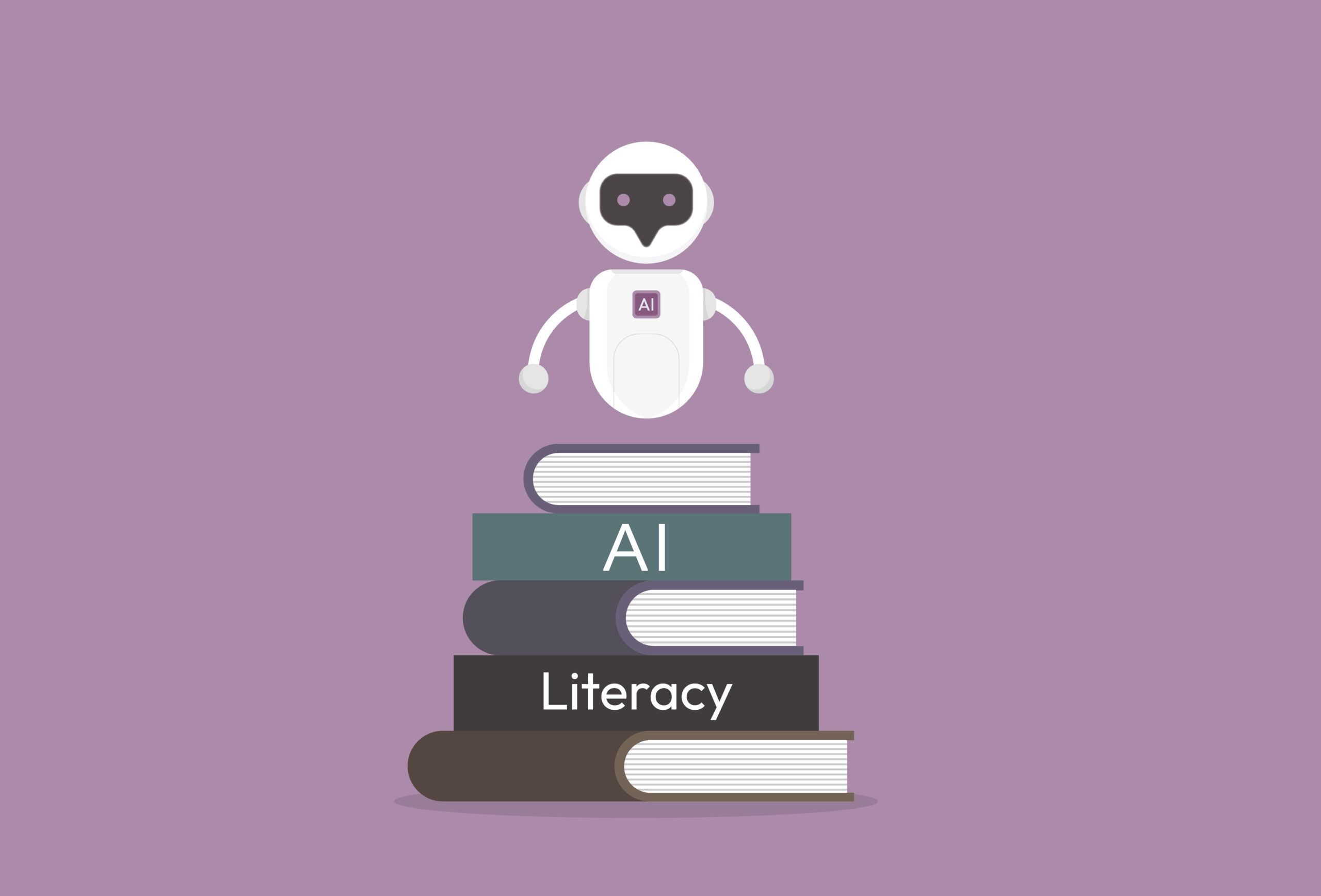I recently attended a student panel on use of AI in college classes. The three panelists shared their perspectives, borne out in an April 2025 Gallup survey: they want to learn to use AI tools in appropriate ways, they’re anxious about the potential negative impact on their critical thinking skills, and they want explicit guidance from their faculty members—which they’re not consistently getting.
Even, or especially, in an AI age, we know our students need to think critically and learn authentically to be productive and engaged citizens and future employees. We recognize we need to update assignments to promote academic integrity in an AI age, yet many of us feel unprepared to do so. The crux of the problem is this: how do we foster critical thinking and authentic learning when it’s so easy for students to outsource their cognitive work?
One promising solution to the triple challenge of fostering critical thinking, meaningful learning, and academic integrity is to double down on transparency. We can provide the guidance students want, embed analysis and evaluation into our assignments to get at that all-important critical thinking, and nudge students toward integrity. How? By embracing transparency.
Let’s detail our expectations for responsible AI use. Let’s emphasize the why: why we want students to use their own cognitive abilities for some tasks, why using AI could be helpful at times, and why we’ve crafted our AI-integrated assignments in the ways we have. Finally, let’s ask students to disclose their use in full transparency (and reflect on their learning, as Marc Watkins argues here).
In short, we can promote integrity when assessments are meaningful, purposeful, and include transparent instruction on appropriate AI use. We can teach students to critically analyze AI-assisted work and promote authentic learning as we do. To help us achieve these aims, here are five steps to update assignments in ways that help students learn the skills they need while fostering a culture of academic honesty.
Step 1: Take a critical look at your current syllabus.
If you’re like me, you have tried-and-true activities and assignments that you’ve relied on for many years. Some of these may be updateable, but others may just need to go. If AI can easily complete a task (try running your instructions through a tool like ChatGPT to find out), maybe it’s no longer a relevant measure of authentic learning. Also, following the remaining steps below will likely mean that you add new instructional practices (like modelling AI use) and new components of the assignments you update (like a reflection on how AI helped or hindered learning). Make time for these important new course elements by getting rid of outdated tasks.
Step 2: Consider whether and how students should use AI on the assignments you keep.
Remember, students want to know exactly what is appropriate for AI use in your class. A helpful tool for this process is the 5-level AI Assessment Scale (AIAS). The levels range from No AI, AI Planning, AI Collaboration, Full AI, and AI Exploration. Each one identifies and sanctions different ways students can use AI in appropriate and meaningful ways to support their learning.
Leon Furze, one of the creators of the AIAS, presents it a tool that helps update our assignments and start conversations with our students. He recommends using this framework to guide your thinking: break down each assignment, project, or discussion board activity into disparate steps, then decide for which parts of the process AI use is appropriate. Providing transparent guidance, guidance that may vary for different parts of the project, is what students need right now.
Step 3: Carve out time to discuss and model your expectations.
Many students are not sure what is acceptable in this current moment. What better way to help them feel confident while developing the AI skills they need than modelling what you’re looking for? Take class time or record a video for your online class to teach your students what you expect them to do with AI for each assignment, what not to do, and what you’ll be looking for in their finished product.
As you approach this aspect of instruction, take heart. I don’t think every instructor needs to be an AI expert, but I do think we’re doing our students a disservice if we’re not teaching them how to be AI Whisperers, a concept I gleaned from Ethan Mollick’s 2024 book, Co-Intelligence. A new kind of expertise is emerging, he argues: the skilled and effective use of AI in every field. As disciplinary experts, you know what kind of AI use will help students learn your material and what will disempower them as learners. Let’s allocate time to help students develop AI literacy while maintaining their agency.
Step 4: Ask students to disclose their AI use, as noted above.
The student panelists showed palpable relief when they described instructors who simply had them cite their use of AI. “Encourage your students to be transparent about their AI use,” one student, a finance major, said. As she talked about how simple it was to add a line at the end of the assignment such as, “ChatGPT generated the outline for this essay,” the anxiety that had previously clouded her expression disappeared.
One approach is to use the AI Disclosure (AID) framework to document how students used AI, or add an appendix to each assignment, or add comments or footnotes to make transparent what they wrote and what AI wrote. Get students to declare their AI use and even better, ask them to reflect on whether their use helped or hindered their learning.
Step 5: If you suspect inappropriate use of AI, don’t accuse students of cheating.
Instead, have a conversation with them. Recall that a primary goal of the AIAS is to facilitate discussions about AI use. Imagine that as a class, you agreed that Level 2 (AI Planning) was appropriate for a particular project. If a student submits work that seems to have been completed at Level 4 (Full AI), refer back to the framework to facilitate a conversation about your perception of their work and their process. As AIAS co-creator Leon Furze points out, now you can get away from wondering whether a student cheated with AI and instead ask, “can I make a valid judgement of this student’s capabilities [whether they have used AI or not]?”
And as argued by the authors of a new book titled The Opposite of Cheating: Teaching for Integrity in an Age of AI, this takes moral accusation out of the conversation, reduces the adversarial tone, and enables students to reflect on and hopefully learn from the experience. You can also decide together what actions should take place next, whether the student resubmits the assignment in accordance with your AI-usage guidance, whether they lose the opportunity to earn a grade for that assignment, or whatever else you and your student decide is appropriate in that situation.
Students want to know how to use AI well. “If we don’t teach students how to use AI responsibly, they’re going to be poorly equipped for the workforce,” said the third student panelist, a computer science major. Let’s update our assignments to facilitate meaningful learning of our content, the skills students need in an AI age, and ethical, integrous use of AI to equip them for the workplace they’ll enter. In doing so, we’re helping to develop engaged citizens who think critically about information they encounter. I can’t think of more important work to be engaged in at this moment in time.
Flower Darby is an associate director of the Teaching for Learning Center at the University of Missouri, a co-author of The Norton Guide to Equity-Minded Teaching (2023), and the lead author, with James M. Lang, of Small Teaching Online: Applying Learning Science in Online Classes (2019).
References
Bertram Gallant, Tricia, and David A. Rettinger. 2025. The Opposite of Cheating: Teaching for Integrity in the Age of AI. University of Oklahoma Press.
Furze, Leon. 2024. “Updating the AI Assessment Scale.” August 28. https://leonfurze.com/2024/08/28/updating-the-ai-assessment-scale/
Furze, Leon. 2025. LinkedIn post. https://www.linkedin.com/posts/leonfurze_artificialintelligence-aieducation-assessment-activity-7295247135480889346-UWFC/
Kassorla, M. 2024. “Our New Course: Some Highlights.” January 4. https://michellekassorla.substack.com/p/our-new-course-some-highlights
McMurtrie, Beth. 2025. “AI Unready.” January 30. https://www.chronicle.com/newsletter/teaching/2025-01-30?utm_source=Iterable&utm_medium=email&utm_campaign=campaign_12441556_nl_Teaching_date_20250130&sra=true
Mollick, E. 2024. Co-Intelligence: Living and Working with AI. Portfolio.
Walton Family Foundation and Gallup. 2025. How American Youth View and Use Artificial Intelligence. https://www.gallup.com/analytics/658901/walton-family-foundation-gallup-voices-gen-american-youth.aspx
Watkins, Marc. 2024. “Make AI Part of the Assignment.” October 2. https://www.chronicle.com/article/make-ai-part-of-the-assignment?sra=true
Weaver, Kari D. 2024. “The Artificial Intelligence Disclosure (AID) Framework: An Introduction.” College & Research Libraries News 85 (10). https://crln.acrl.org/index.php/crlnews/article/view/26548/34482



























